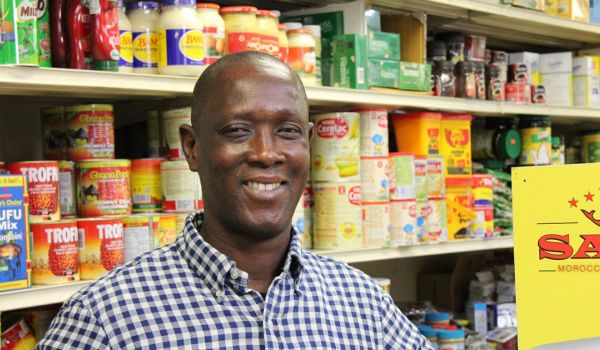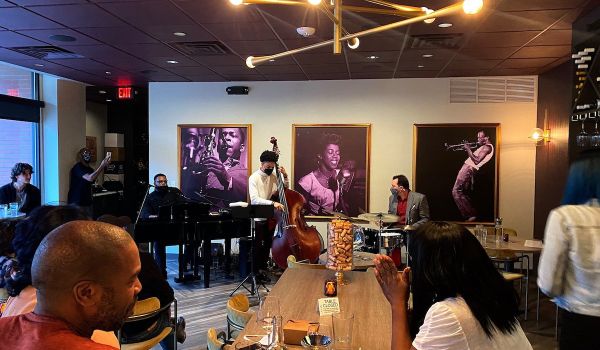Whether customers were coming in for the pollo peño or the chino fries that boast a seaweed topping, new light rail construction was making it difficult to reach Chino-Mex, a family-run fusion restaurant on South Central Avenue in Phoenix.
For Carlos Castillo, the restaurant’s owner, the construction coupled with the COVID-19 pandemic threatened his two-year-old business.
However, he got some financial help from the Small Business Financial Assistance Program (SBFAP) that was launched this past January by the city of Phoenix and Valley Metro, the regional public transportation agency.
“It helps pay payroll,” Castillo says. While his restaurant is not right next to the rail project, it does affect his business. “Sometimes they don’t have left turns or right turns so it takes longer to get to the restaurant. They change lights all the time or they close entrances.” As a result, patrons have to find new routes to the restaurant to avoid the construction that began in the summer of 2020.
Administered by Prestamos CDFI, LLC, the one-year pilot program is funded by both the city and the Phoenix Community Development & Investment Corporation. The grants are offered to small businesses affected by Valley Metro’s Northwest Extension Phase II and South Central Extension/Downtown Hub light rail projects.
Valley Metro and the City of Phoenix brought in Prestamos to interview the businesses, determine eligibility and help them with the application process on its website.
“We opened up the process for applications in mid-March of this year and we started receiving applications, mostly in April and May,” says Terry Gruver, community relations for Valley Metro. “The goal is to try to help the businesses sustain and overcome any impacts from construction happening near them. One of the goals is helping businesses who rely on foot traffic—customers who are coming in the door as opposed to a call center.”
The South Central extension is a five-mile route that will connect South Phoenix to the regional light rail system. That area, in particular, has more small businesses, many of them minority or woman-owned. “So, that was really the focus when the city put the funding together; to really assist those more vulnerable, more locally-owned businesses along the route,” Gruver says. Additionally, the administrator of the program had to demonstrate bilingual capability and an understanding of the communities that were going to be affected and needed to be served—attributes that Prestamos possessed.
Since the program’s inception, $253,000 in amounts of up to $9,000 has been distributed to 50 businesses, says Susan Tierney, Valley Metro’s communications manager. So far that accounts for a small percentage of affected businesses—there are 566 businesses along the Northwest Extension phase II and the South Central Extension/Downtown hub, according to Tierney, and at least one local business recently cited the light rail construction as a major factor in their closing—but not all businesses are eligible. They must make less than $500,000, be locally owned and have 15 or fewer employees. The grant money that these businesses received can be used for business operational expenses such as rent or mortgage payments, utility costs, insurance and payroll. It can’t be used to pay taxes.
“We know that it is a challenge for businesses when they are along an area where business is disrupted,” Tierney says.
When the program concludes at the beginning of 2022, Gruver says the city and Valley Metro plan to review the effectiveness of the program and see if there are areas that can be improved.
But for Castillo, who originally hails from Mexico, the money that came through Prestamos has made a big difference. “They walked me through the application and it was very simple,” he says. “[Without the grant] we would have been gone a long time ago.”

This story is part of our series, CDFI Futures, which explores the community development finance industry through the lenses of equity, public policy and inclusive community development. The series is generously supported by Partners for the Common Good. Sign up for PCG’s CapNexus newsletter at capnexus.org.
Frances McMorris is a Tampa-based writer who has been a staff reporter covering courts and legal affairs for the Wall Street Journal, the New York Daily News and Newsday. She specializes in legal and business topics.
















